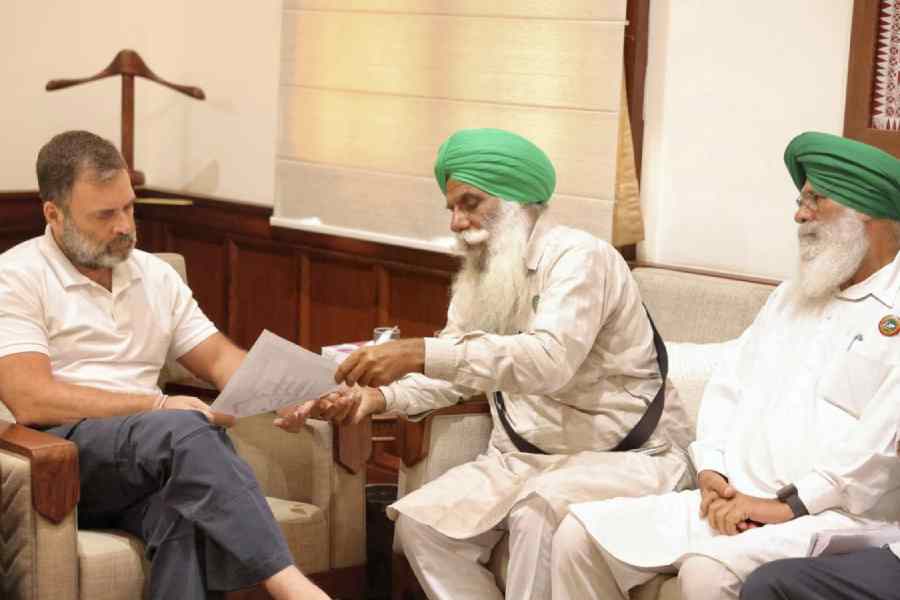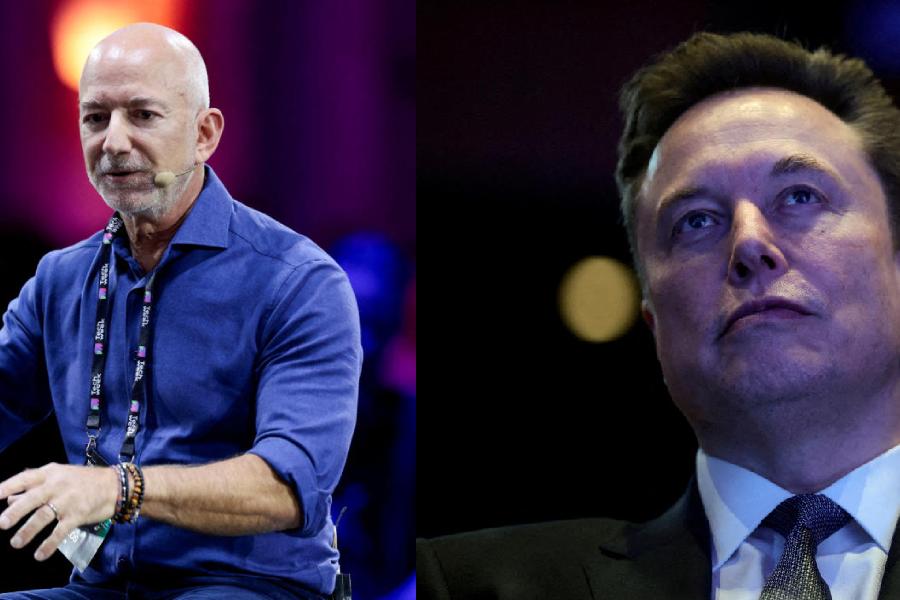The Supreme Court on Wednesday observed that there was a “trust deficit” between the government and the farmers.
The court decided to constitute an independent committee of eminent persons to resolve the stalemate arising out of the blockade at the Shambhu border between Punjab and Haryana.
The top court was hearing the Haryana government’s plea challenging Punjab and Haryana High Court’s order asking it to remove within a week the barricades at the Shambhu border near Ambala where farmers have been camping since February 13 to press for their demands, including a legal guarantee on minimum support price for their produce.
“Your ministers might go there with good intentions to the farmers without realising the local issues. There is a trust deficit. Why don’t you have some neutral umpire? There has to be confidence-building measures,” Justice Surya Kant, heading a three-judge Supreme Court bench, observed.
“You have to take some steps to reach out to farmers. Why would they otherwise come to Delhi?” the bench, also having Justices Dipankar Datta and Ujjal Bhuyan, said. “Have you taken any initiative to negotiate with the farmers?” it asked.
The court ordered that status quo be maintained by all parties to the dispute to prevent a flare-up at the border.The bench gave a week to solicitor-general Tushar Mehta, appearing for the Haryana government and the Centre, and Punjab advocate-general Gurmeet Singh to suggest names of independent and eminent citizens for inclusion in the proposed committee to tackle the issue.
Hearing a PIL complaining about the hardships faced by citizens on account of the blockade at the Shambhu border, Punjab and Haryana High Court had on July 12 directed the Haryana government to remove the barricades. The Haryana government had challenged the order in the Supreme Court.
The barricades were put up to prevent the farmers from marching towards Delhi to press for demands.
Mehta, appearing for the Haryana government along with state advocate Lokesh Sinhal, told the bench that around 500-600 tractors had been converted into “virtual armoured tanks” by the farmers and removing the blockade and permitting the peasants to march to Delhi would result in a serious law-and-order problem.
Justice Surya Kant, however, observed that it was a common practice among farmers in Punjab and Haryana to modify their tractors. Moreover, the agitating farmers, who have been camping at the border since February, need some kind of a shelter, the apex court observed.
Punjab advocate-general Singh complained that the blockade had massive ramifications for the state’s economy as it was unable to transport goods to Delhi.
When the bench pointed out that the government could not block a national highway in this manner, Mehta said even the farmers should not be allowed to use tractors, earth movers and trolleys on a national highway as it was prohibited under the Motor Vehicles Act.
Later the bench dictated the following order: “Having heard learned solicitor-general of India on behalf of the state of Haryana, learned advocate-general, Punjab, and other learned senior counsel/counsel for the parties, we have impressed upon them to have instructions re: constitution of an Independent Committee comprising such eminent persons, who are able to reach out to the agitating farmers, Union of India, the state governments as also the other stakeholders to find out some viable solution of the issues to the extent they are found to be just, fair, feasible and most importantly in the interest of one and all.
“The states of Punjab and Haryana may suggest the names or else they can leave it to us to find out some suitable persons for the constitution of the committee. Let appropriate instructions be taken within a week.”
Posting the matter for further hearing on August 2, the apex court said: “Till such time, it is directed that status quo shall be maintained so that no untoward incident takes place at the Shambhu border. The states of Haryana and Punjab are further directed to submit their respective proposals for the removal of barricades in a phased manner for the free flow of traffic and to redress the inconvenience being experienced by the public at large at the site.”










